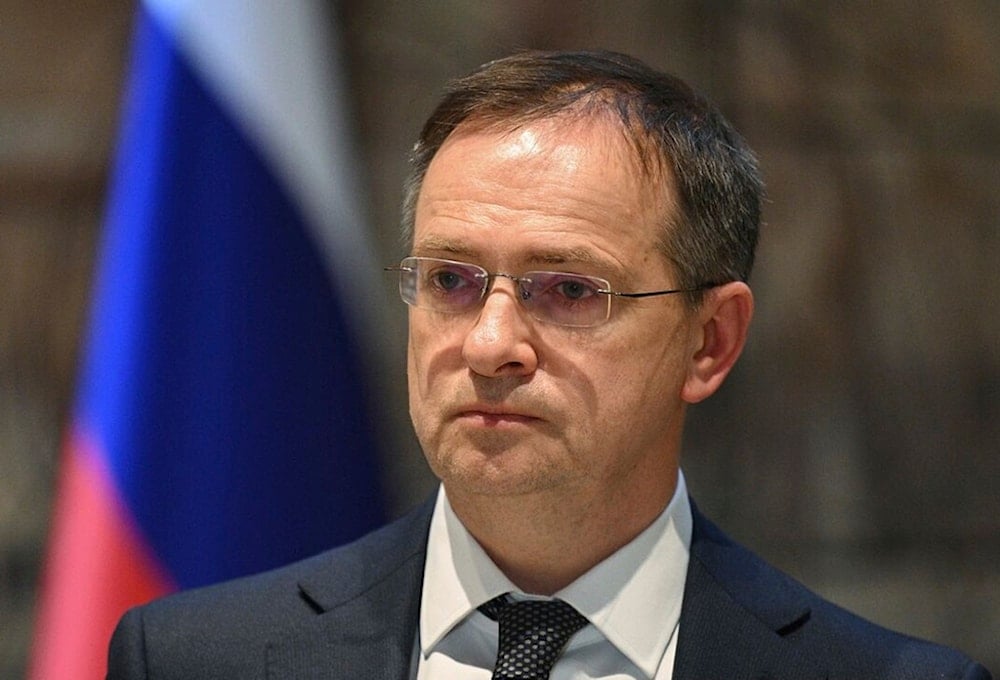Russia, Ukraine agree on largest prisoner swap and limited ceasefire
Russian delegation head Vladimir Medinsky confirmed that Moscow submitted a comprehensive two-part memorandum to the Ukrainian side outlining a potential roadmap for conflict resolution.
-

Russian presidential aide, Vladimir Medinsky, gives an statement to journalists at the Russian consulate in Istanbul, Turkey, on Friday, May 16, 2025 (Ramil Sitdikov, Sputnik, Pool Photo via AP)
The latest round of Russia-Ukraine negotiations in Istanbul has produced a series of tangible agreements focused on humanitarian relief, even as broader political and military disputes remain unresolved.
Russian delegation head Vladimir Medinsky confirmed that Moscow submitted a comprehensive two-part memorandum to the Ukrainian side outlining a potential roadmap for conflict resolution.
"Russia's memorandum on settlement in Ukraine [is] detailed, elaborated," Medinsky stated. He explained that the proposal includes "steps toward full-fledged ceasefire" with "variability and several ways" for implementation. The Ukrainian delegation has received the document for review.
Although a full ceasefire was not achieved, the talks led to several practical breakthroughs. Medinsky announced that "Russia identifies all bodies of Ukrainian soldiers to be handed over to Kiev" and will "unilaterally transfer 6,000 bodies of Ukrainian soldiers to Kiev next week." This step, aimed at reducing humanitarian suffering, was part of a series of coordinated gestures to de-escalate tensions.
Dignity Exchange
One of the most notable outcomes was the agreement on a major prisoner exchange, described by Medinsky as the largest to date. "Medinsky says Russia and Ukraine have agreed on [the] largest prisoner swap," which includes an "all for all" format prioritizing "sick, seriously injured" individuals.
In addition, "Russia, Ukraine will also exchange soldiers under 25 years old," and both parties have agreed to form a working commission to facilitate these transfers "without need for political decisions."
The two sides also discussed the fate of children affected by the war. Russia received "from Ukraine list of 339 names of children in difficult situation because of conflict," Medinsky said. Rejecting claims of abduction, he insisted, "There are no children kidnapped by Russia, only children rescued by Russian soldiers."
He further noted, "Russia returns children to Ukraine if their parents or legal representatives are present," and confirmed that Moscow is "working on issue of reuniting families separated due to conflict in Ukraine."
Read more: 160+ Ukrainian children allegedly taken to Russia found in Germany
Tactical Pause
On the battlefield front, Medinsky proposed a short-term ceasefire. Russia suggested a "concrete ceasefire" lasting "two or three days in certain sectors of frontline," to facilitate the recovery of soldiers' bodies. Ukraine's military "promise to work out proposal for ceasefire in certain areas in near future," he added. A limited agreement was already reached, allowing both sides to claim their dead in specific zones.
Despite Ukraine's earlier call for a broader 30-day unconditional ceasefire, which Russia declined, these local pauses mark a small but meaningful step. Talks were conducted in Russian, and Medinsky noted that the process could result in "at least total of 1,000 people, but possible even more" being exchanged as part of the prisoner arrangements.
Read more: Russia, Ukraine discuss prisoner exchange during Istanbul talks
Ukraine's draft memorandum, submitted earlier, reportedly maintains its demands for full territorial sovereignty, no restrictions on military capabilities, and reparations from Russia. These positions contrast sharply with Moscow's conditions, which include recognition of occupied regions and the end of Ukraine's NATO aspirations.
While the Istanbul round did not resolve the war's core disputes, observers view the humanitarian agreements as a foundation for further negotiations. Family reunifications, recovery of the fallen, and prisoner exchanges offer a rare window of cooperation between two sides entrenched in a profoundly protracted conflict.

 4 Min Read
4 Min Read











